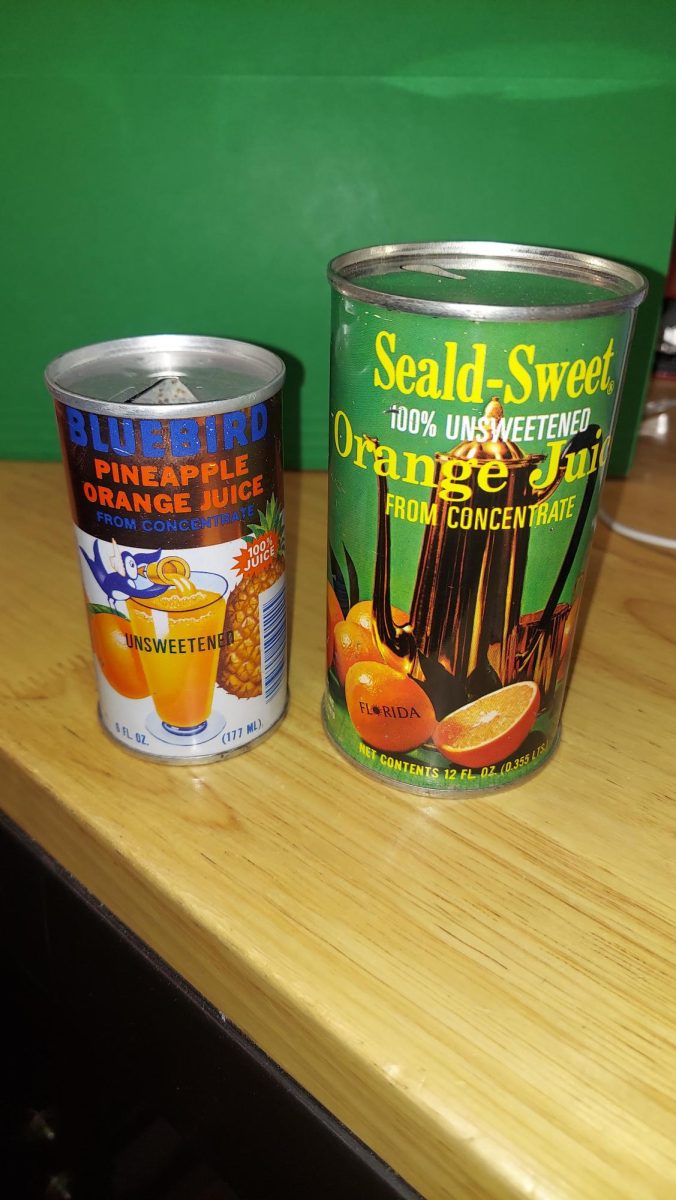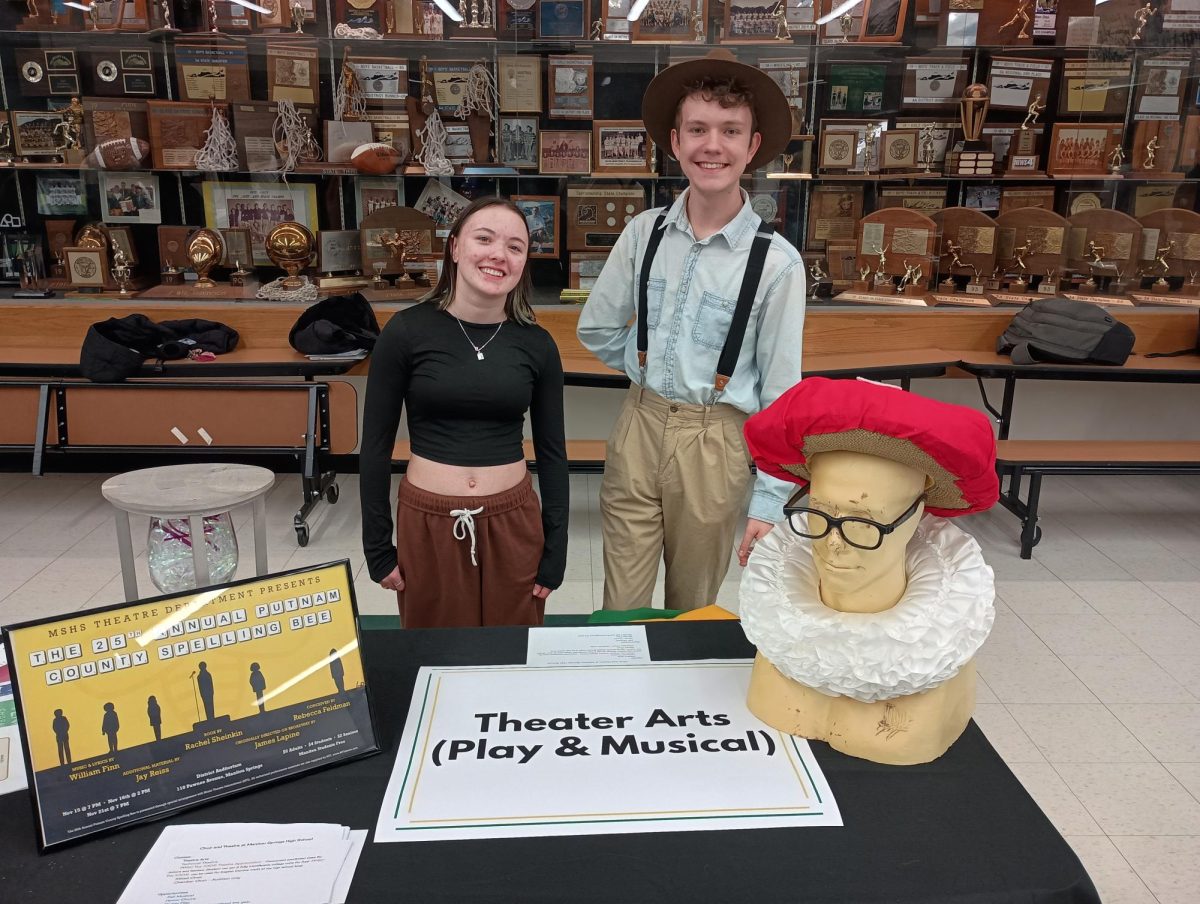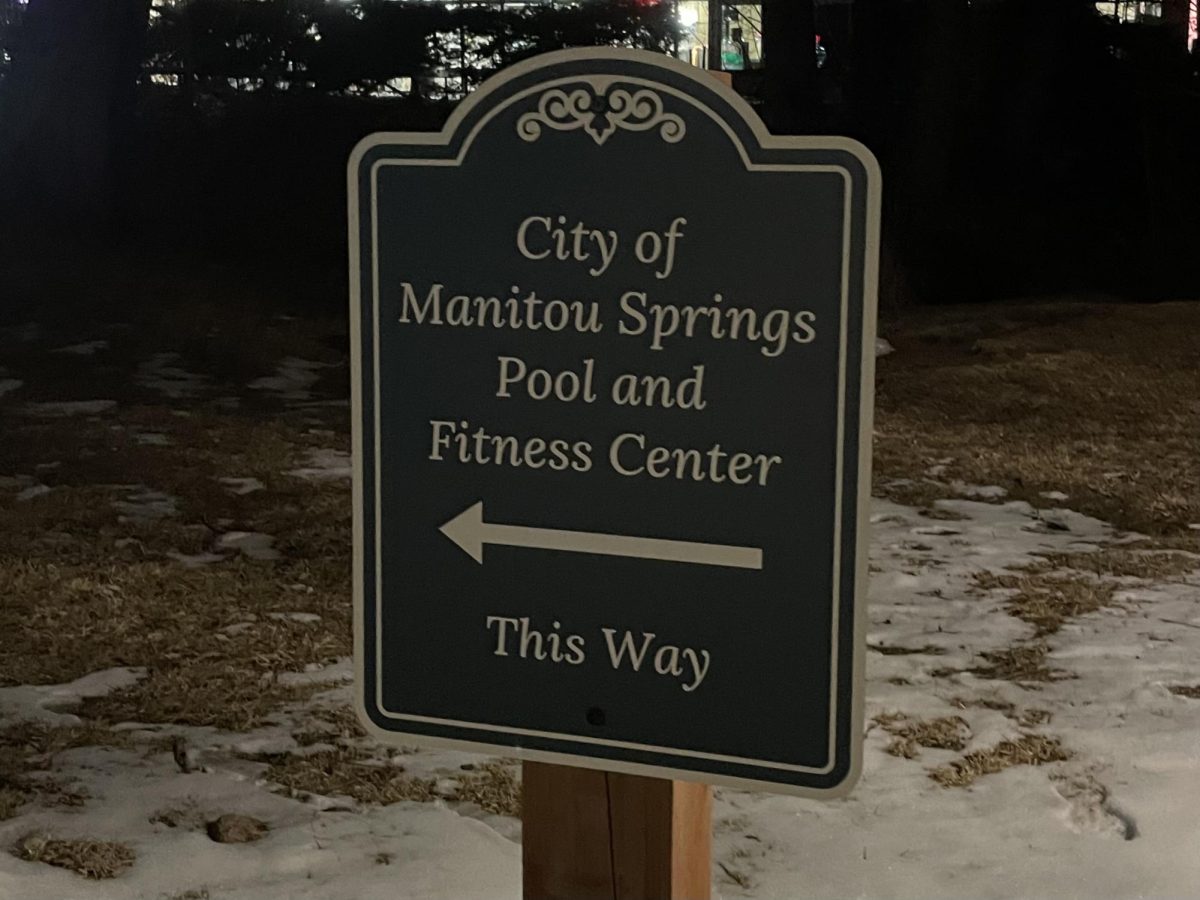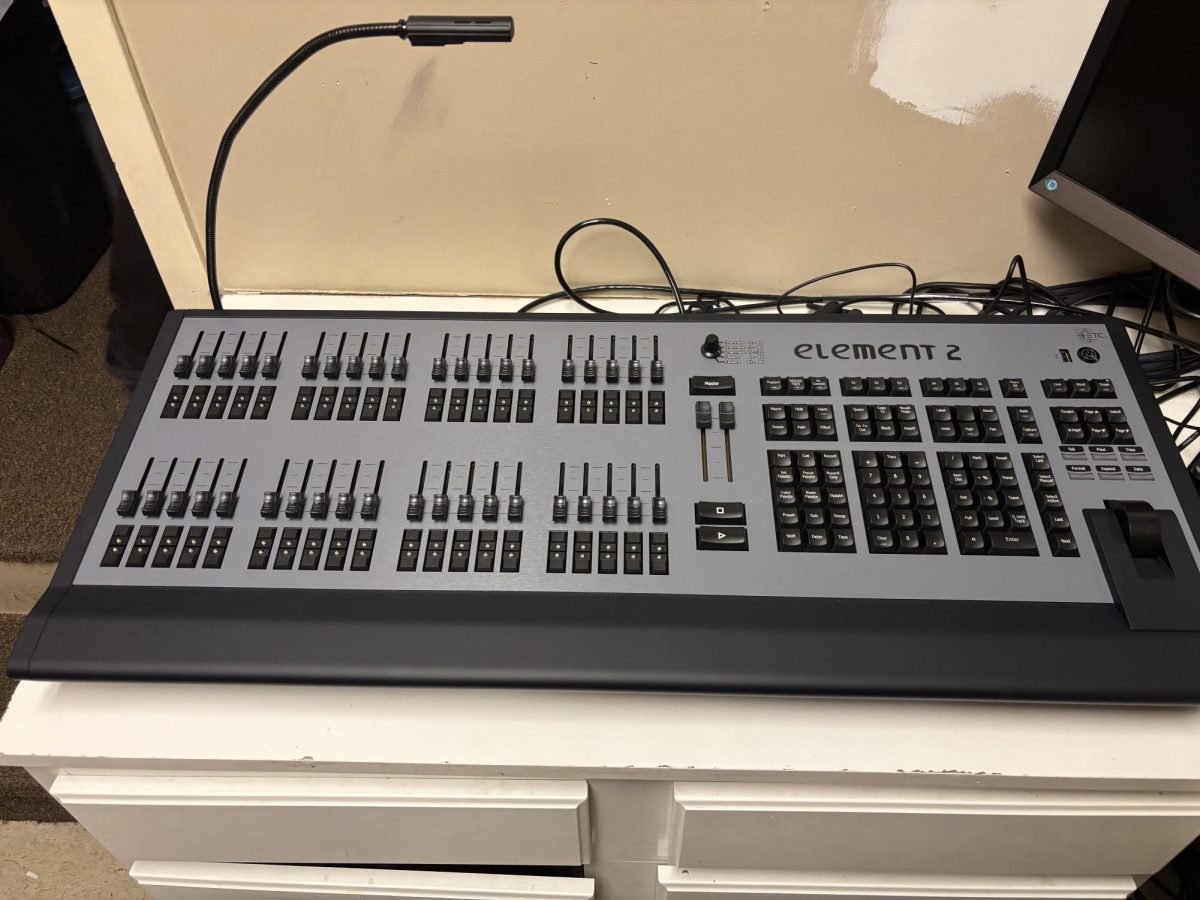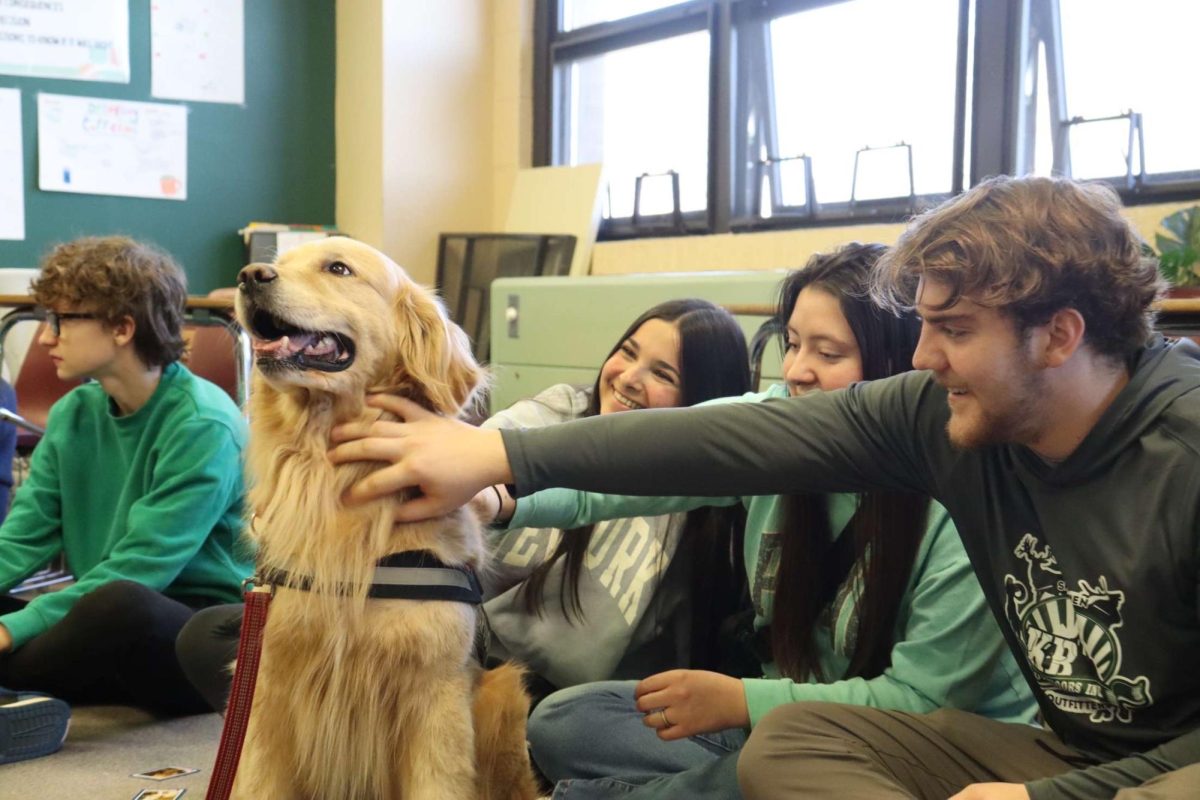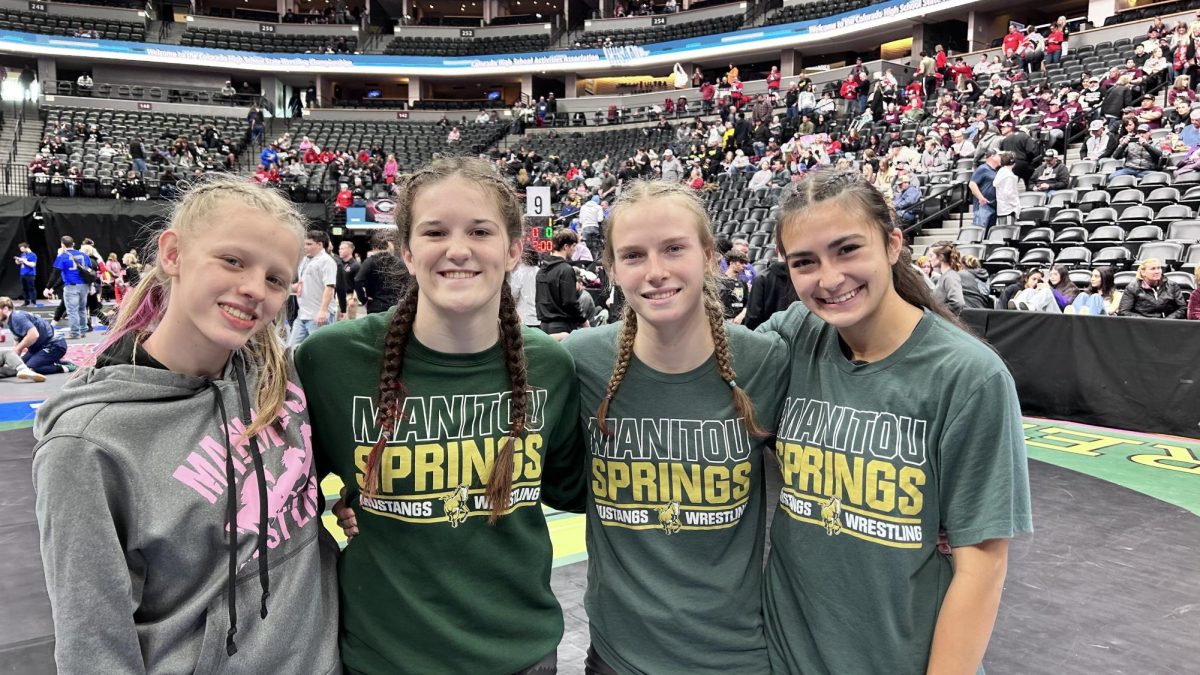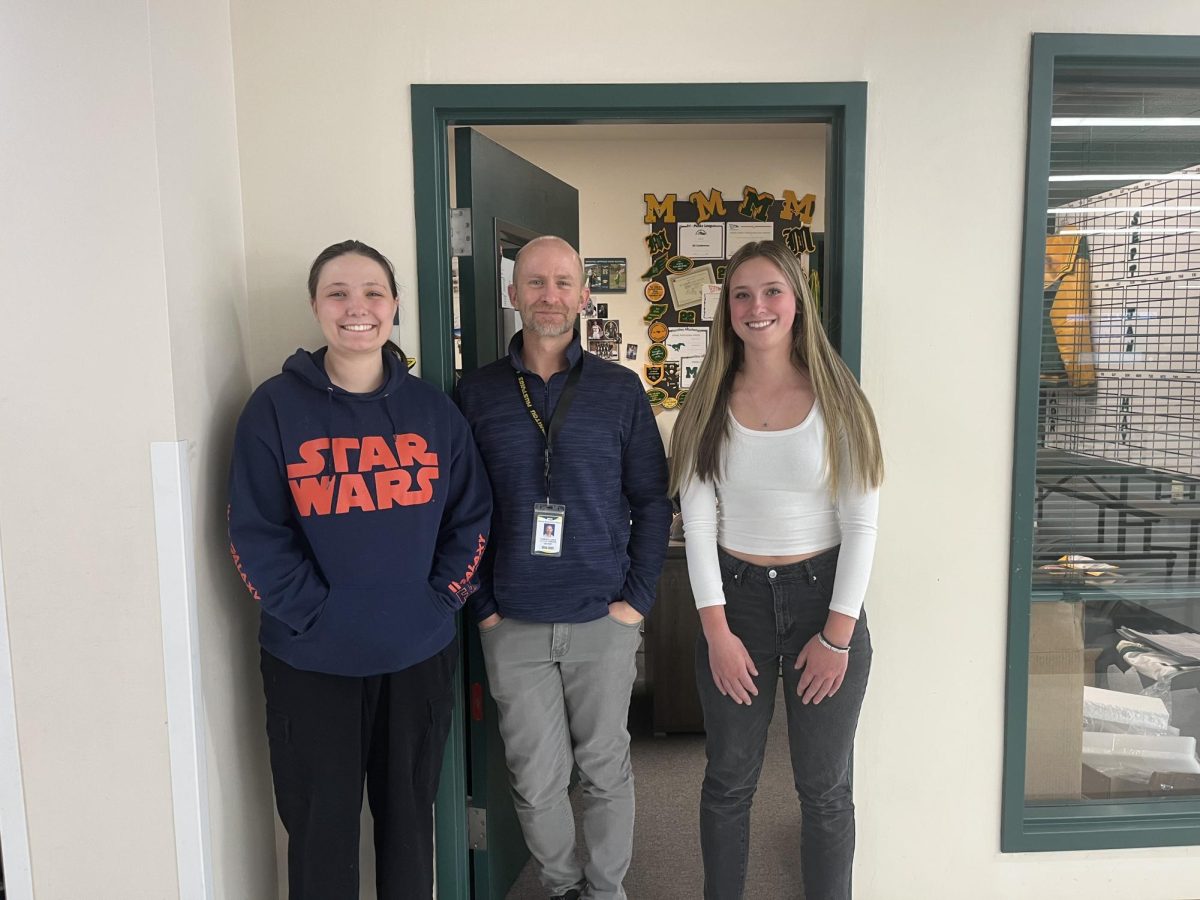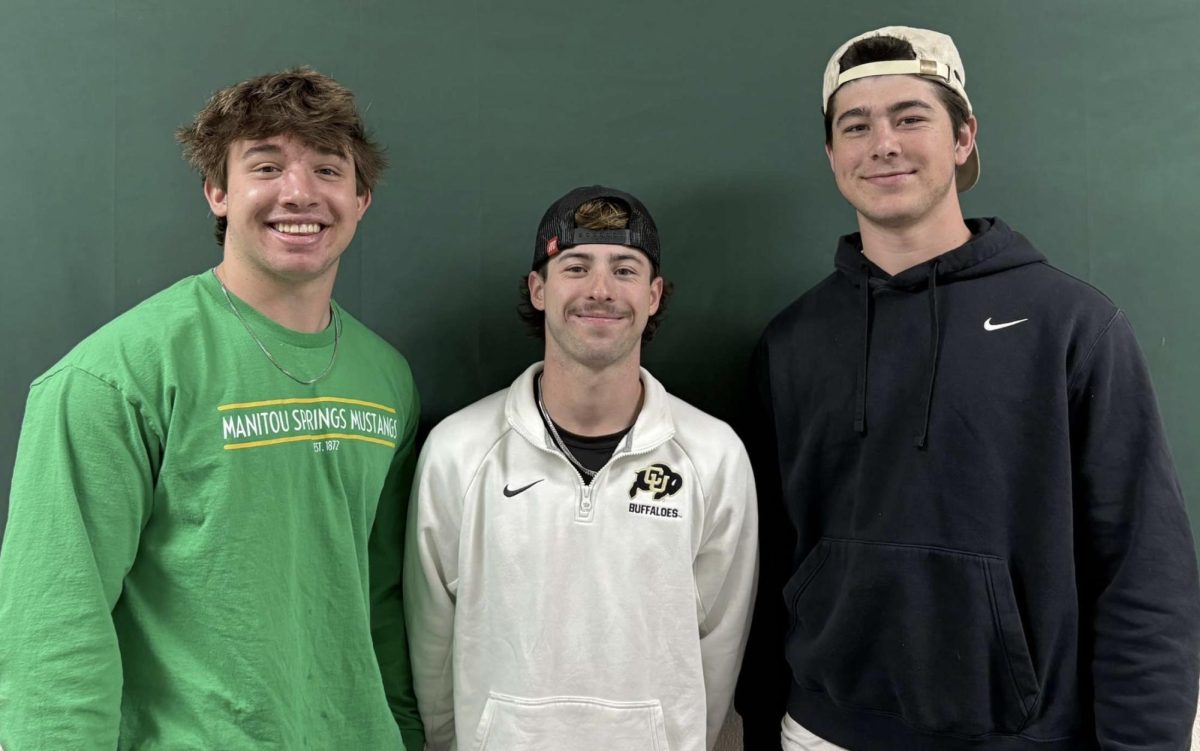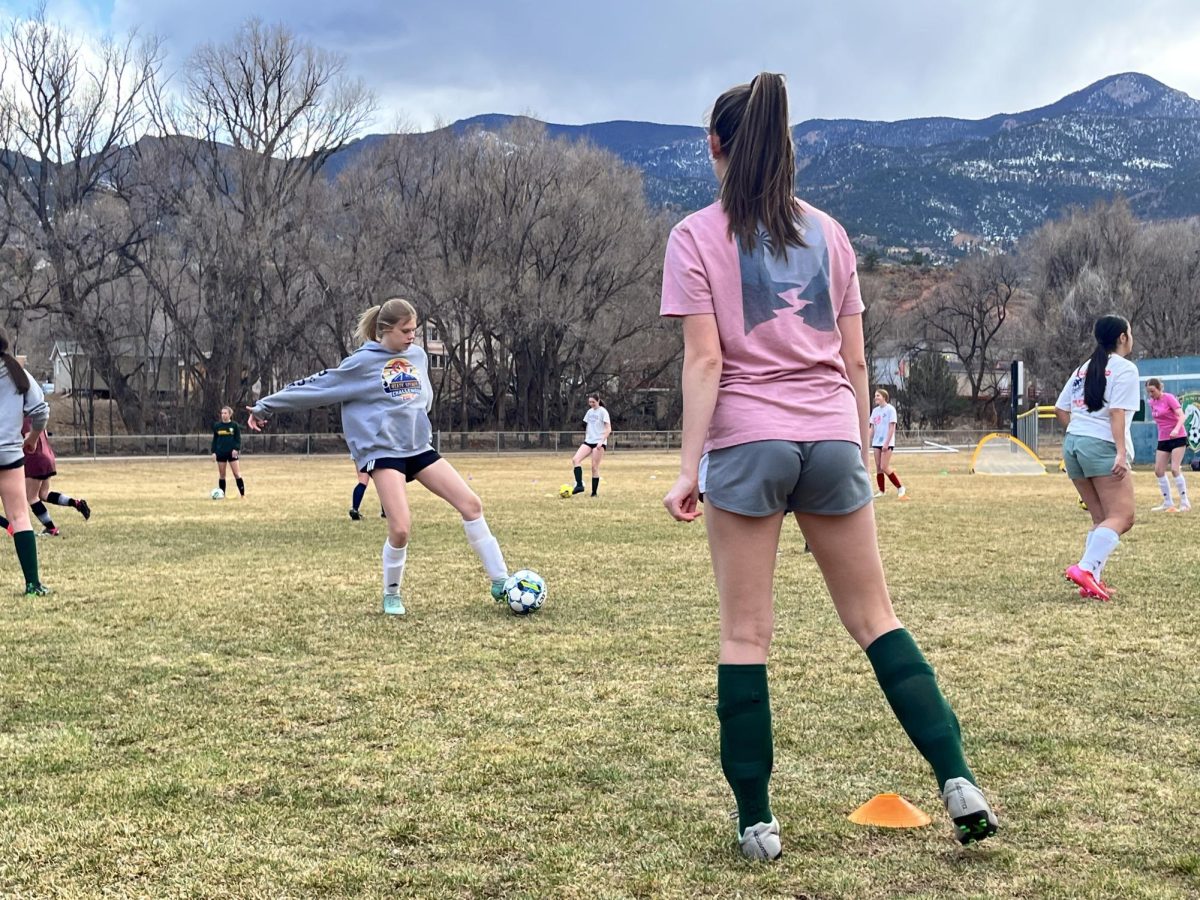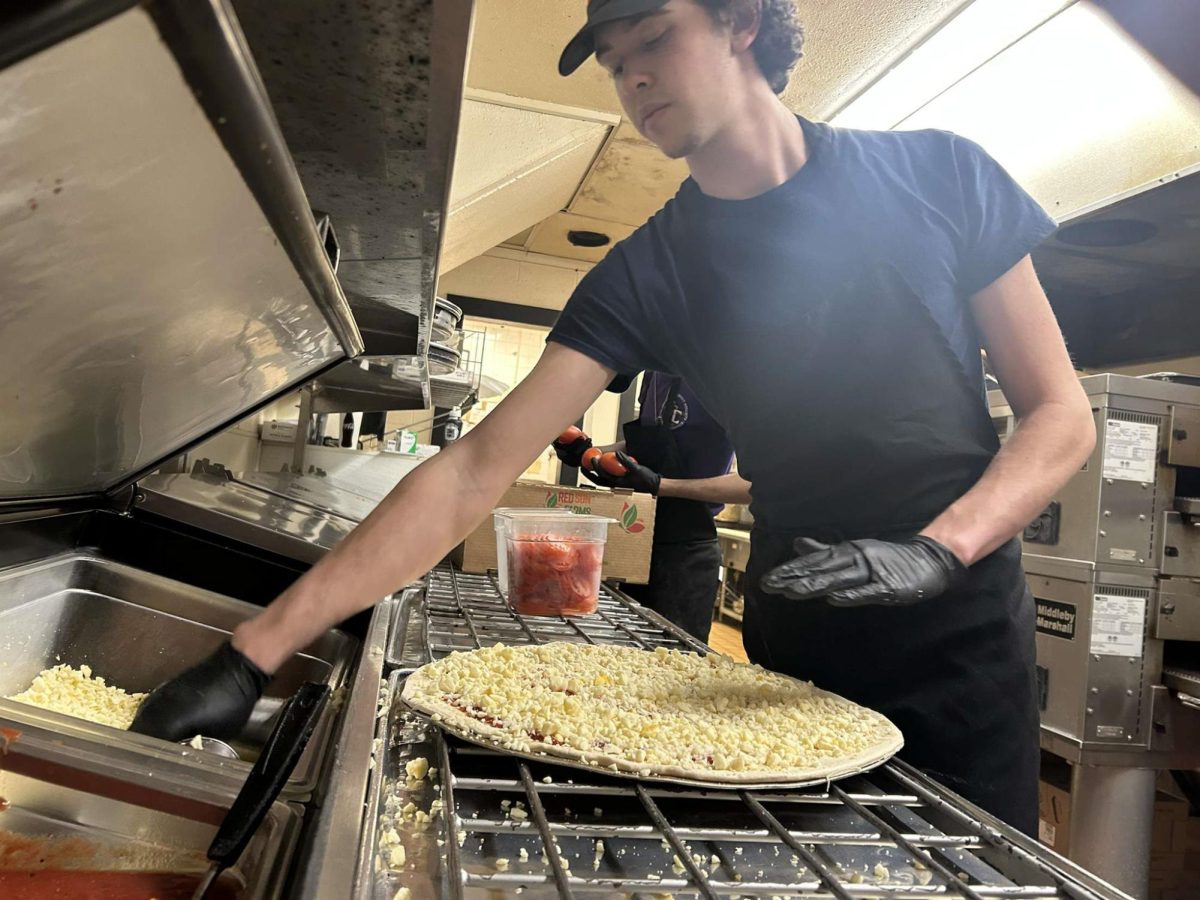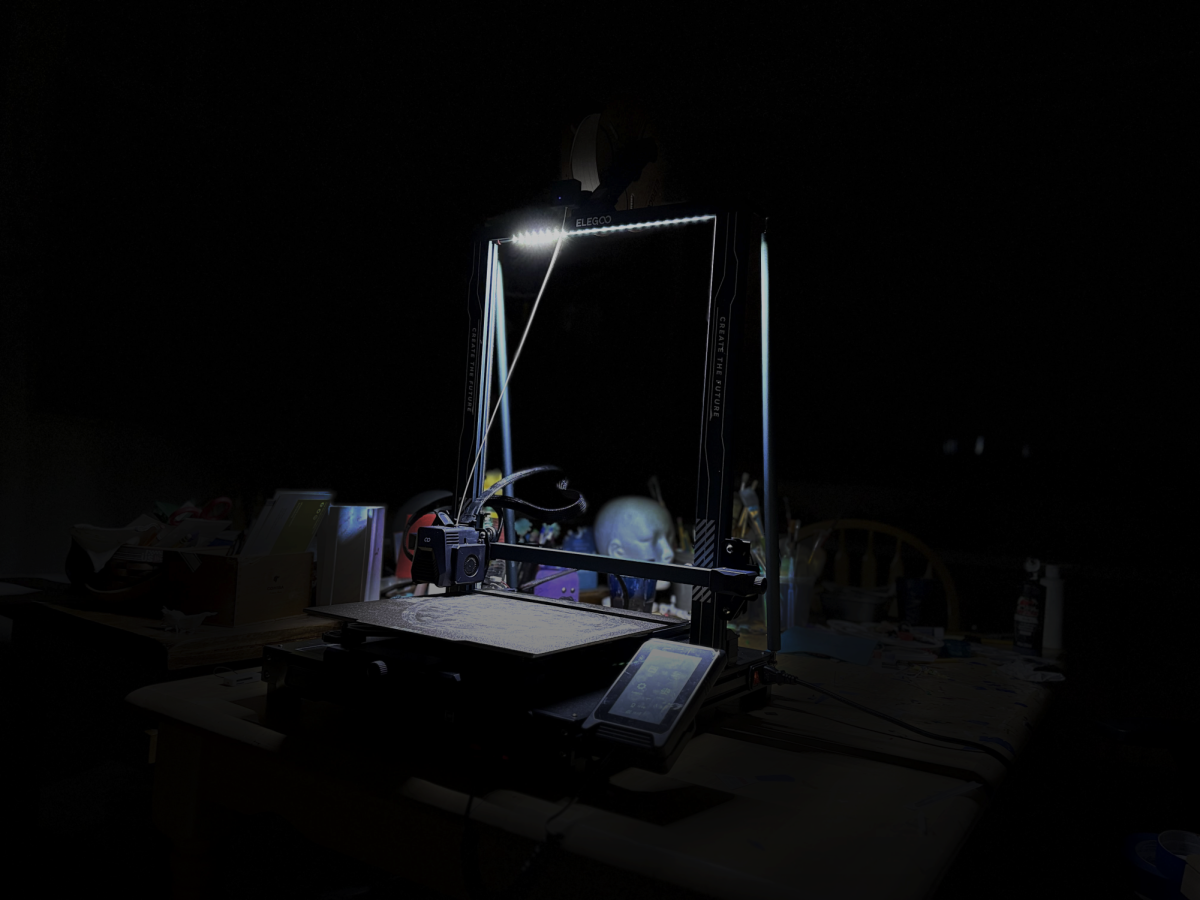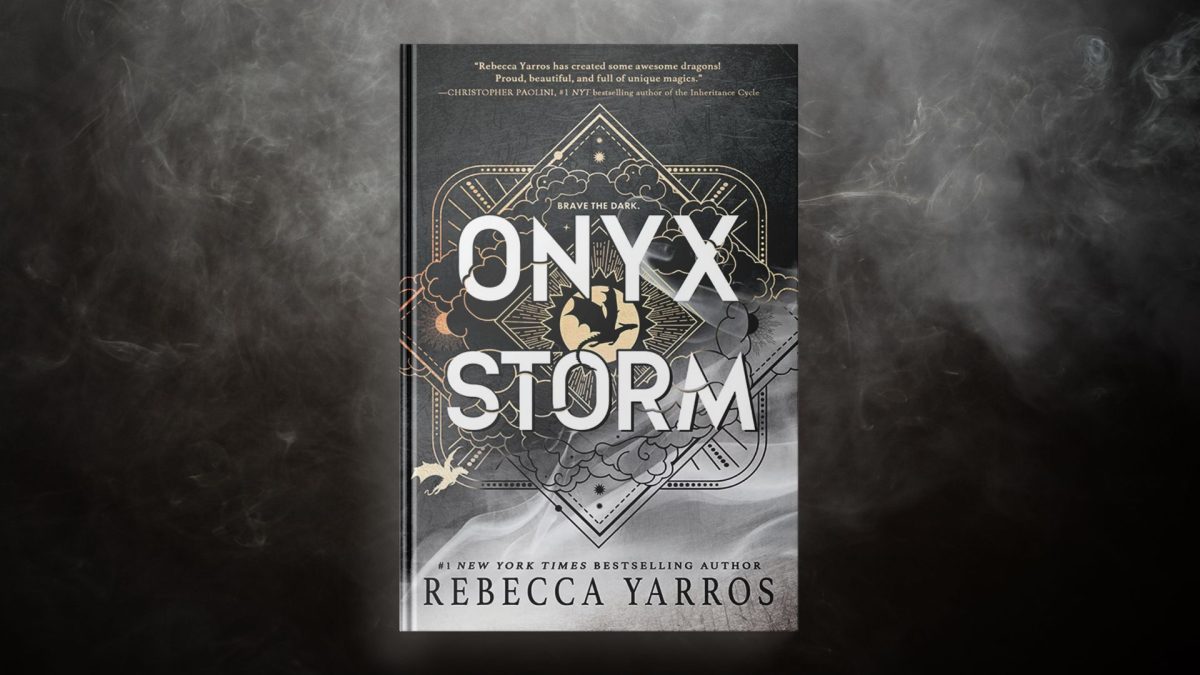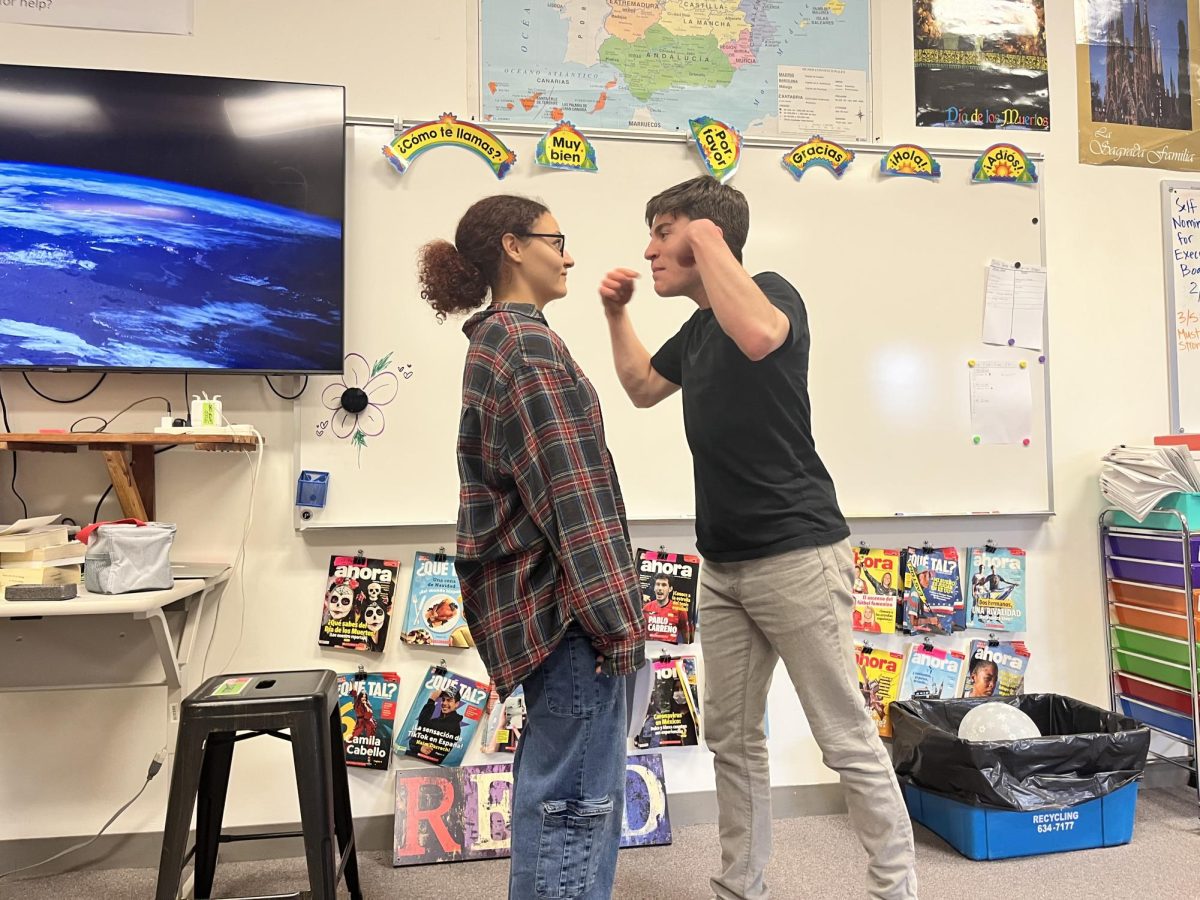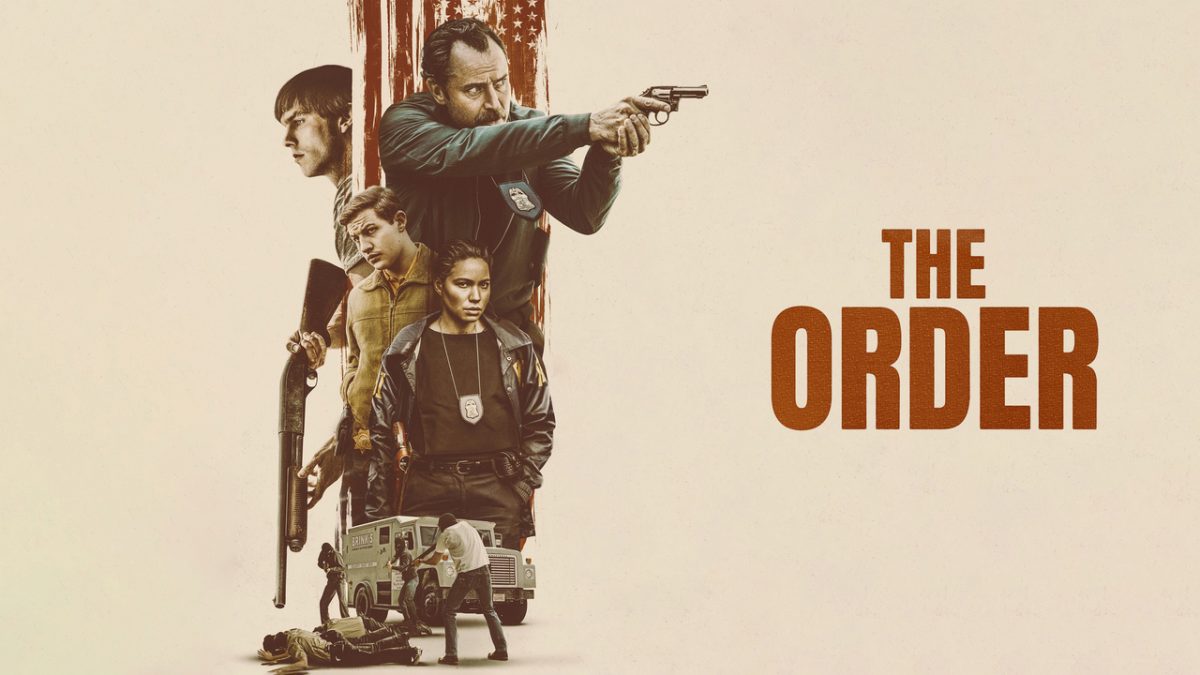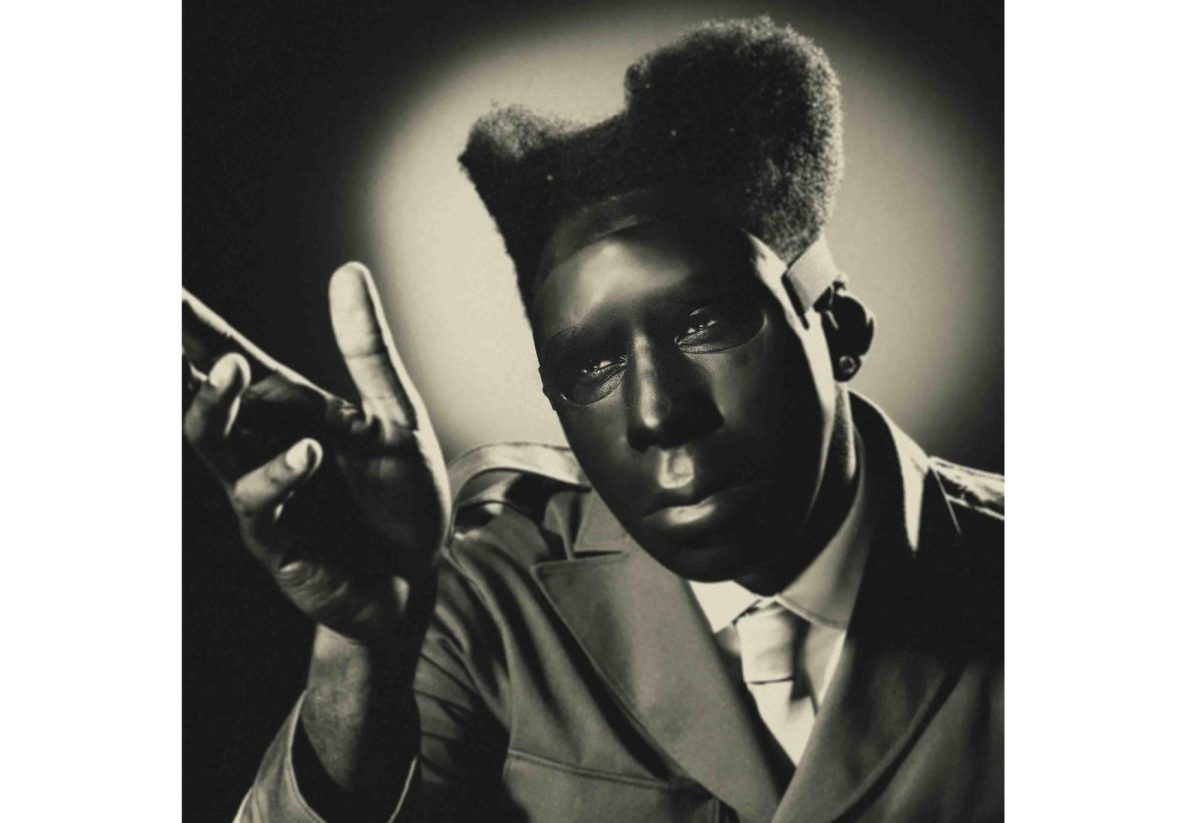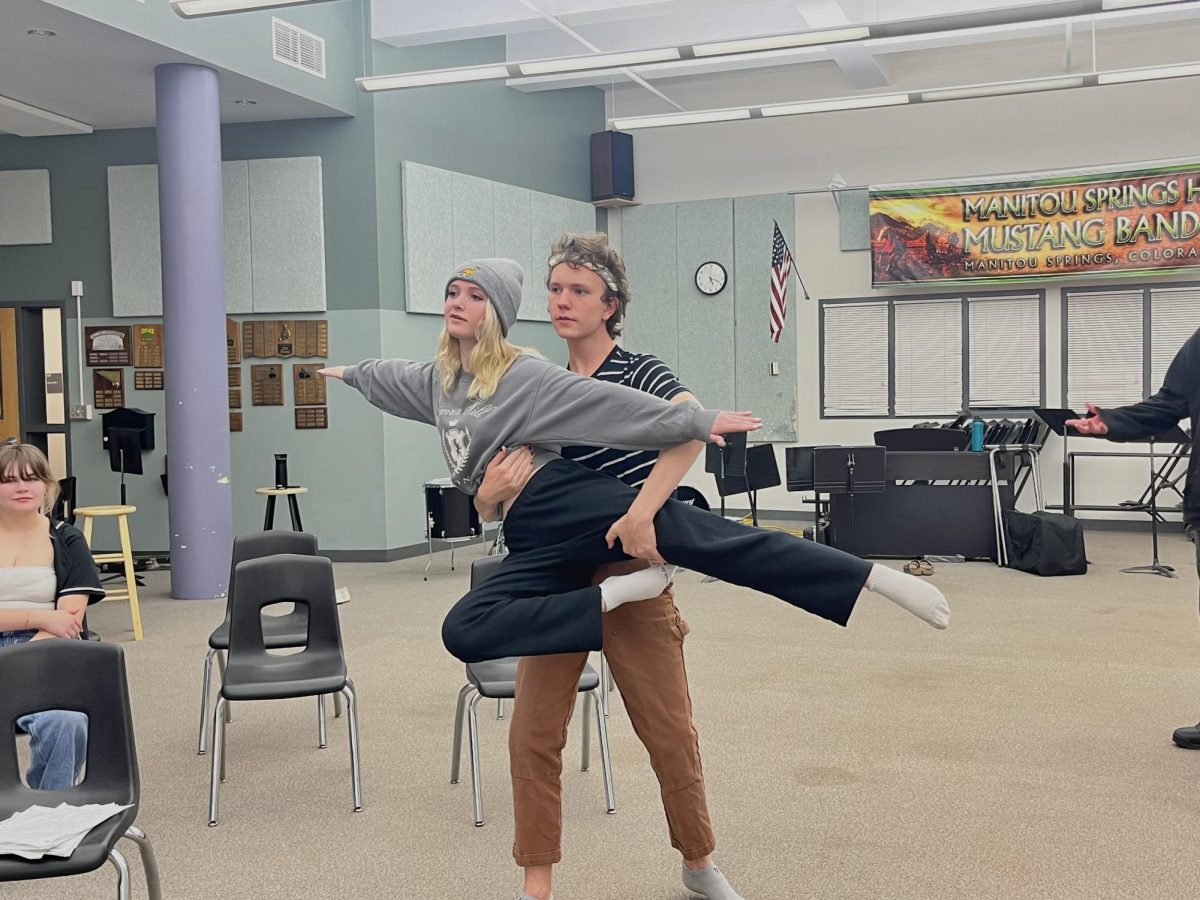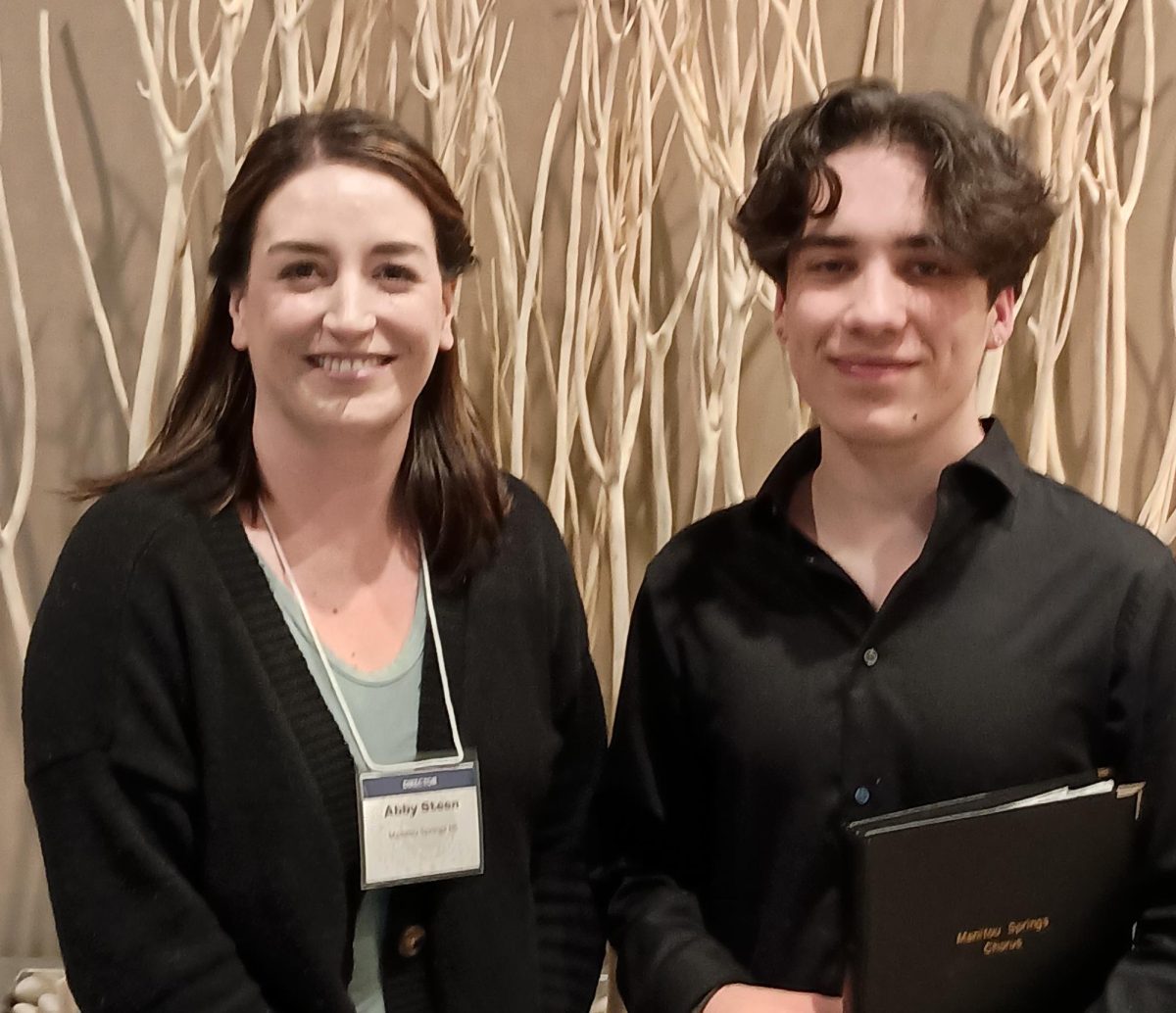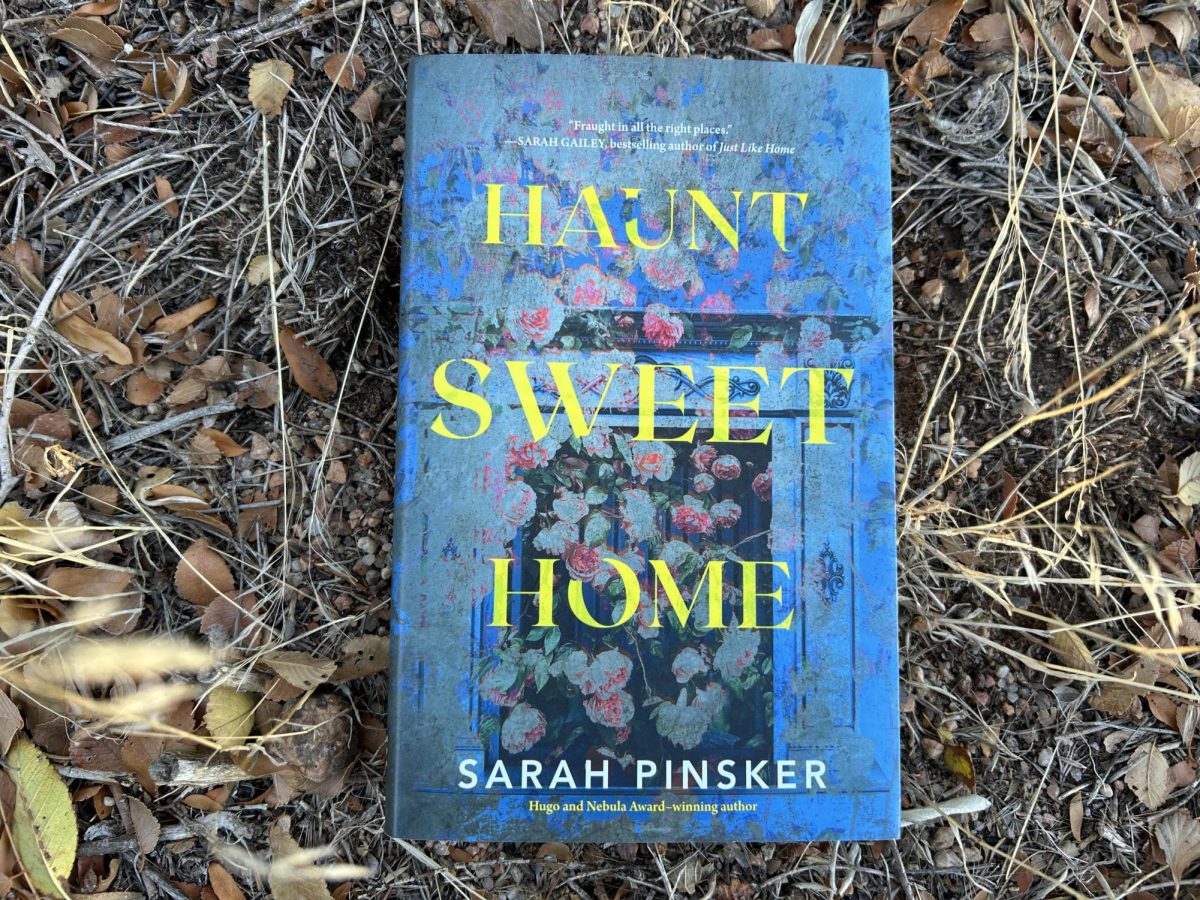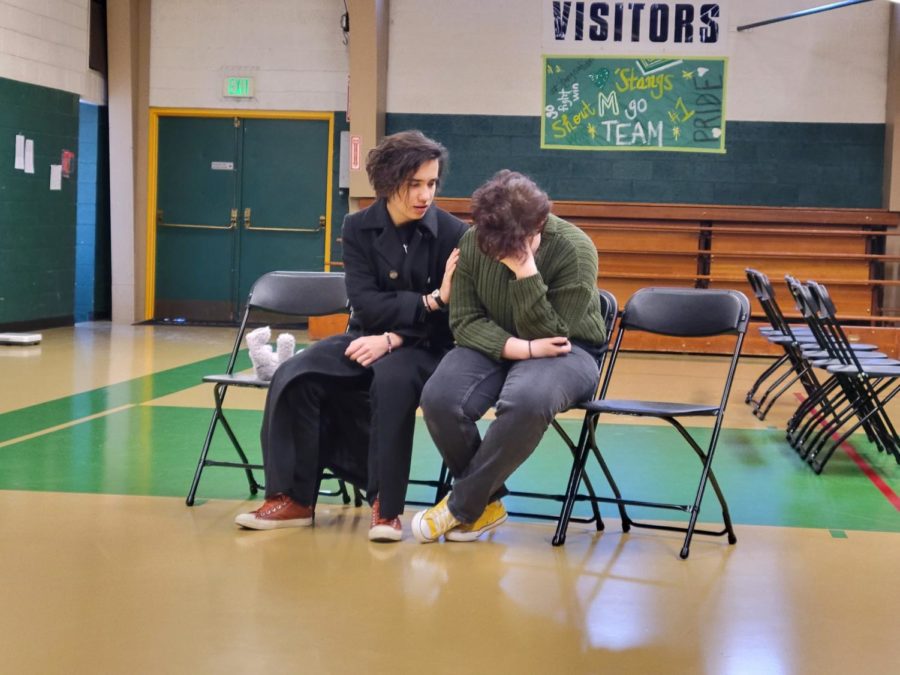Theater Department brings their scripts to life in student directed plays
Kai Jacobson (11) and Ari Clark (10) rehearse “Fly on a Tapestry,” directed by Elanor Fugate (12).
February 3, 2023
Manitou Springs High School theater students are well versed in the hard work and quick adapting needed to present a show, both on the stage and behind the scenes. A few students have taken on the exciting opportunity to become directors themselves.
The eight student-directed pieces will be performed at 7 p.m. on Feb. 4 at the District Auditorium alongside the competitive One Act play, “Too Many Daughters.” A matinee viewing will also be available for students on Feb. 8.
Preparation for the student-directed pieces has spanned only a short amount of time, opening theater experience and involvement up to students, such as Elsa Baker (11), who would not normally have enough time to commit.
“I like having a flexible schedule within school, working during advisories and lunch,” Baker said. “It’s worked great, with smaller stuff it’s less stressful.”
Baker will be starring in “Hippies, Housewives, and Watering Holes,” by D.M. Larson, directed by Rain Malmin (11). Student directors could select a preexisting play or write their own script.
“Personally, it’s a great experience to work with my fellow actors,” Baker said.
Wendy Harms, the MSHS theater teacher, has had vast experience coaching student-directed pieces, the project’s history going back to the original student director, Abby Steen, the current MSHS choir teacher. Harms believes that compared to the meticulous aspects of a musical, student-directed plays offer a unique type of performance, especially considering the run time is kept under 10 minutes.
“They’re a microcosm of the big thing,” Harms said. “It’s a different style of acting.”
Directing is vastly different from exclusively acting, as it brings many new responsibilities, suddenly captaining the ship after working years as a sailor.
“I think it’s really valuable for them to be able to understand all of the factors that the director has to deal with when they’re directing a show,” Harms said. “They get a real visceral appreciation of what it takes to make a script come to life.”
Taking on the role of a director not only paves the way for a better understanding of the inner workings of theater but provides a true insight into what theater means to those who partake in and enjoy it.
“It is really good for them because that’s one of the joys about theater: it’s not about me,” Harms said. “If you were creating a piece of art, a visual art, you have total control of that, but the X Factor in theater is it’s collaborative.”
Evan Hanchey (12), one of eight student directors, values collaboration among herself and her actors, communication being vital to any theater production.
“It really strengthens your skills to communicate both physically and mentally, you have to match the emotional levels of your actors, because if you’re not collaborating with them on a level that they feel comfortable with, then the entire piece just falls apart,” Hanchey said.
“Something Important,” written by Hanchey and set in 1810, will tell the story of two friends discussing a recent, particularly egregious, scandal they are both connected to at an English church.
“I wanted to do something a little bit different in a play, so I chose something that has a different theme and a different tone to it,” Hanchey said. “I thought that would be interesting to bring to the table for our performances.”
Playwriting is a gateway to creative expression for writers. The characters and ideas presented within a script are meant to come to life outside the page to be perceived and considered by a live audience.
“It’s so cool to see your own writing come to life, because you can only see it in your head,” Hanchey said. “Seeing it in person is just an incredible experience.”
Presenting an independently written and directed piece is as cerebral as it is emotional, presenting a part of oneself to the world for all to see.
“Independently directed pieces offer people sort of a glimpse into somebody else’s mind that you wouldn’t normally get through writing because writing is not a visual art,” Hanchey said. “I think that getting to illustrate how you want a section of your mind to present to other people is just one of the most beautiful things.”



